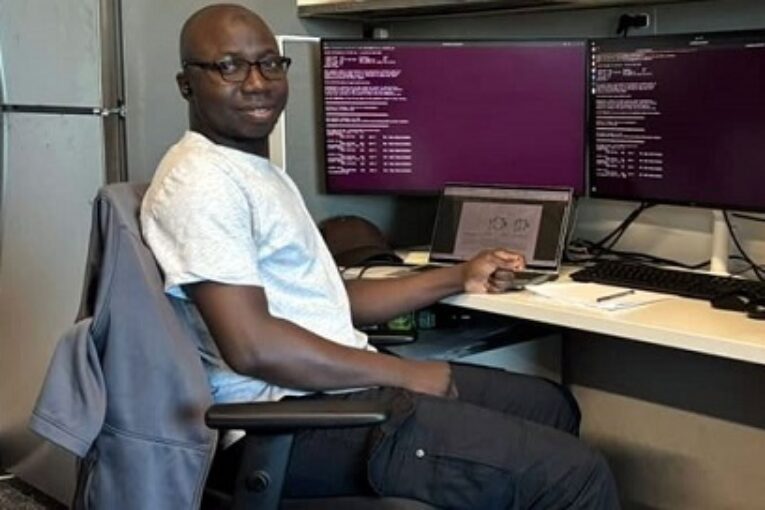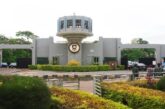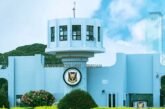
On a humid afternoon in Akure, Nigeria, a young undergraduate sat poring over textbooks in a university library, unaware that his journey would one day stretch from West Africa to some of the most advanced research institutions in Europe and the United States. That young man, Ishola Abeeb Akinwumi, is now a rising voice in computational drug discovery and the founder of a new educational initiative he calls The Insilico Lab.
Ishola’s story is not a simple tale of academic progression—it is a narrative of persistence, global vision, and the belief that science should be borderless.
“I’ve always seen chemistry as more than just a subject,” he reflects. “For me, it’s a tool for solving problems that affect people everywhere. The question has always been: how do we empower more people to use it that way?”
His path began at the Federal University of Technology, Akure (FUTA), where he graduated with First-Class honors in Industrial Chemistry. That achievement became a launchpad to Europe, where Ishola immersed himself in the emerging field of chemoinformatics. He spent his first master’s year at the University of Ljubljana in Slovenia before completing the degree at the University of Strasbourg in France.
It was during this period that he joined the Computational Algorithms for Protein Structures and Interactions (CAPSID) team at Inria, CNRS, and the University of Lorraine in 2024. His work focused on the conformational dynamics of the spike trimer—an area at the center of modern virology and vaccine development. “That experience showed me the power of computational tools,” he says. “We can now simulate processes that were once invisible, and those insights can directly inform drug design.”
Today, Ishola is pursuing a Ph.D. in Medicinal Chemistry at the University at Buffalo in the United States, where he continues to explore how algorithms and molecules intersect in the quest for new therapies. But while many young researchers might keep their eyes firmly on personal goals, Ishola has been building something larger—something for others.
That “something” is The Insilico Lab, an online platform designed to democratize access to computational drug discovery. The idea, he explains, came from noticing a stark gap. “In fields like computer-aided drug design and AI-driven discovery, the knowledge is moving so quickly. Yet many students, especially in places like Nigeria, Africa, and even other underserved regions globally, simply don’t have access to structured, practical training.”
The Insilico Lab seeks to close that gap by offering step-by-step tutorials, from the basics of computer-aided drug design to more advanced techniques such as molecular docking, ADMET prediction, and molecular dynamics simulations. The platform also explores emerging areas like quantitative structure-activity relationships (QSAR) and artificial intelligence applications in medicine. Complementing these are blogs, updates, and a community-driven approach that encourages collaboration across borders.
“It’s about more than information,” Ishola emphasizes. “It’s about empowerment. Imagine students in Lagos, Nairobi, or Mumbai working on the same computational drug discovery problems as their peers in Boston or Berlin. That’s the kind of global community we’re trying to build.”
The vision is ambitious. In the short term, Ishola plans to add advanced curricula, workshops, and online seminars with international experts. Longer term, he envisions The Insilico Lab as a recognized global hub where young scientists collaborate and contribute to solving health challenges that transcend geography—malaria, cancer, viral pandemics, and beyond.
He sees this not only as a tool for Africa but as a platform for the world. “The problems we face in medicine are global. The solutions must be global too. If we bring more voices into the conversation, especially from places that have historically been underrepresented, we all benefit.”
For students and young scientists, Ishola offers a simple but powerful piece of advice: “Be curious. Be persistent. Never stop learning. The world’s knowledge is within your reach, especially now. Don’t let your environment define your possibilities. Seek mentorship, use resources like The Insilico Lab, and stay hungry to learn.”
From FUTA to Strasbourg, from Akure to Buffalo, Ishola’s journey reflects the new face of science: international, collaborative, and deeply interconnected. But perhaps more importantly, his story demonstrates how one individual’s vision can extend far beyond personal success—building a pathway for countless others to follow.
The Insilico Lab is live and growing, open to anyone ready to explore the frontier of computational drug discovery. As Ishola puts it, “This is just the beginning.”
To learn more or join the community, visit: https://sites.google.com/view/insilicolab/home




